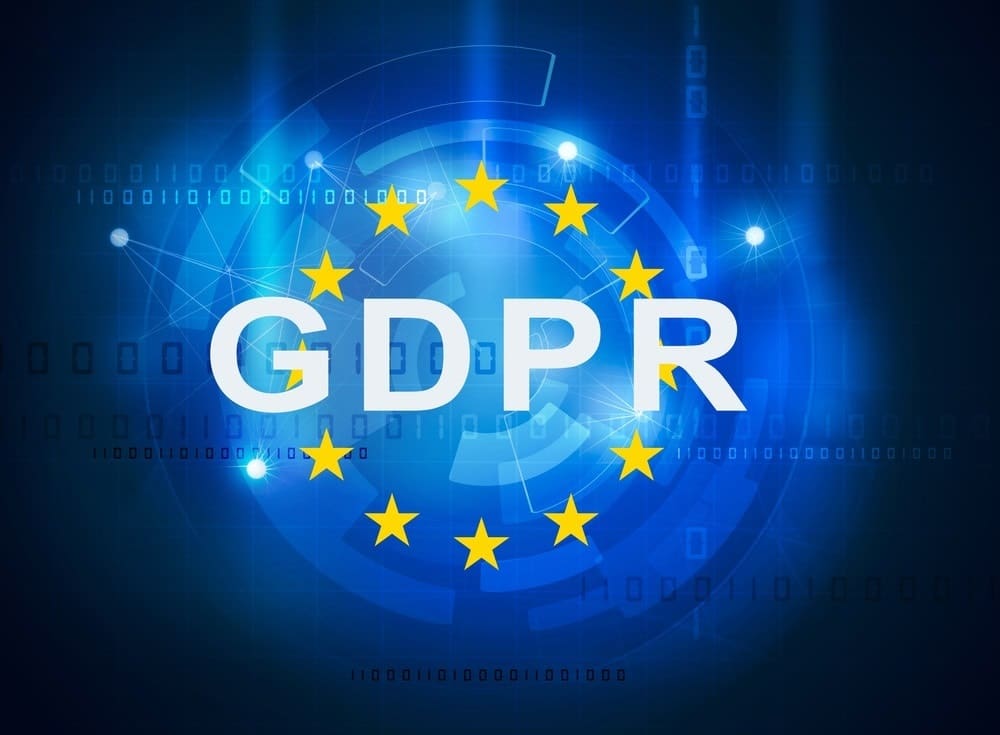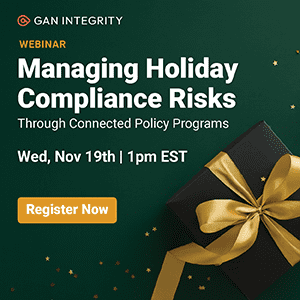Managing Risk Amid Uncertainty
We live in an uncertain world, and it seems to grow more so every day. Jim DeLoach discusses how to handle risks associated with escalating geopolitical tensions and legislative changes, and he poses questions leaders should consider as they look to mitigate risks inherent in the company’s operations.
Management’s views and assumptions about the geopolitical and regulatory environments are critical inputs into strategy-setting. If one or more assumptions prove invalid, the strategy and business model may require adjustment. The timing – whether the organization is proactive or reactive – is often a function of how effective its monitoring process is.
Management’s ongoing monitoring of the implications of geopolitical and regulatory shifts on the organization and the strategy and business model, as well as the role of the board of directors in overseeing that process, are important success factors. How does an organization manage the business in an unpredictable, uncertain environment amid escalating geopolitical tensions and the specter of significant regulatory shifts, both domestically and abroad?
Specifically:
- How do companies monitor developments and their related impact on the business?
- What role does the board play in overseeing this activity – for example, how often is the board briefed on fresh developments?
- Furthermore, how are significant geopolitical developments considered?
These topics are important, as we live in an uncertain world in which dramatic shifts can occur without warning. Below are several observations.
Managing the effects of policy and geopolitical shifts requires a process.
A process of staying in touch with the sources of power begins with monitoring legislative, regulatory and global market developments through appropriate means (e.g., hiring political insiders and consultants, tracking developments through published sources, monitoring geopolitical hot spots and keeping close tabs on activist special-interest groups).
The process also entails engagement with and informing legislators, regulators and policymakers through point-of-view statements, face-to-face meetings, lobbyists, correspondence, social media, advocacy groups, industry associations and other means. It continues with responses to new legislation and regulations by updating policies, modifying existing processes and systems and implementing new processes and systems. Thus, the process facilitates monitoring, engagement/reach out and response. For example, multinationals and companies engaged in cross-border trade need to watch developments on the trade policy front closely.
Evaluate strategic assumptions.
Every organization’s strategy has underlying assumptions, explicit or implicit, about the future. These assumptions represent management’s “white swans” or expectations about the regulatory environment and global markets. In times of uncertainty, it makes sense to assess the validity of underlying strategic assumptions considering different legislative and regulatory scenarios whenever there is a transition of power. If it’s possible that one or more assumptions might be rendered invalid, senior management should assess the ramifications to the strategy and business model and evaluate the options if such conditions transpire. As suggested below, scenario analysis may be useful in this regard.
Consider the implications of scenarios germane to the sectors in which the organization operates, and begin preparing for the possible.
Define appropriate plausible and extreme scenarios that consider the impact of various policy, legislative and regulatory initiatives on the company’s markets, channels, customers, labor pool, supply chains, cost structure, discretionary spend and business model. Use the scenarios to understand the potential impact on the business, and formulate strategic alternatives to capitalize on market opportunities and address potentially disruptive change. Update the analysis as the legislative/regulatory agenda unfolds and policies are clarified.
For example, one major Japanese automaker spent three months following the 2016 U.S. election evaluating alternative scenarios resulting from candidate Trump’s trade policies and their impact on U.S. and global sales and formulated contingency plans to pivot should disruptive change occur, while at the same time embracing the incoming administration as a market opportunity for the company.
Pay attention to sovereignty risk.
Geopolitical dynamics can create country risk. The primary objective of managing country risk is to protect company investments from risks of impairment and sustain expected investment returns (ROI). Investment impairments may arise from confiscatory actions by a sovereign, such as nationalization of the business or expropriation of assets. ROI reductions may arise from discriminatory actions by a sovereign directed to the company, a targeted industry (say, energy or banking) or companies from certain countries.
Such discriminatory actions might include additional taxation, price or production controls and exchange controls, among other things. Both investment impairments and ROI reductions may arise from destructive or disruptive events or circumstances (e.g., violence, terrorism, war or infrastructure deficiencies). Such risks must be addressed by understanding the driving forces of change in the countries and regions in which the company does business and taking proactive steps to manage identified exposures.
For example, when high risk of confiscation or discrimination emerges, actions to reduce the exposure might include repatriation of cash (to the extent allowed given existing exchange controls and currency conditions) and managing down the investment by avoiding additional capital investments, cessation of inventory replenishments from abroad and financing payroll, maintenance and other operational functions through local cash flow.
Initiating an exit by divesting assets in the cool of the day is always an option if a willing buyer is available. If necessary and feasible, moving tangible and nontangible assets (e.g., data files and intellectual property) located in proximity to known “hot spots” out of harm’s way may be appropriate. Entering into joint ventures with local and foreign partners may reduce exposure to confiscation risk, since the presence of nationals can take a multinational under the radar. If cost-effective, political risk insurance is another option covering the risks of confiscation, political violence, insurrection, civil unrest and discrimination, among other things.
When an adverse event arises in a particular country, a postmortem should be conducted to review the assumptions the company had concerning that country from an economic, political and financial system risk standpoint. Did management see the event coming? If not, why not? If management saw it coming, did the organization take steps to prepare? Could the company have done anything differently? A postmortem provides management an opportunity to review what happened and identify “lessons learned” that can be applied to other countries in which the organization operates and where country risk is an important factor.
Diversify if revenue mix is dependent on government funding.
Defense contractors are dependent on defense spending. Materials companies, heavy-equipment manufacturers and construction contractors are impacted by infrastructure spending. The top-line prospects of companies and not-for-profit organizations with a high dependency on government contracts and other funding or close ties with federal agencies tend to ebb and flow, depending on the political party in power and pulling the purse strings that fund subsidies, grants and other awards to the private sector.
In good times, it’s easy for companies to operate. But when budgets are restrained in areas not deemed a priority, companies need to consider deploying their core competencies in other markets. Foresight in the strategy-setting process can go a long way to facilitating organizational preparedness when it’s clear that times are changing and the funding spigot may get turned off.
Other considerations.
Tax reductions and regulatory relief may be rare, but they do happen. Freed-up cash flow enables companies to consider a variety of options (e.g., undertake new investments, pull deferred projects off the back burner, enhance compensation structures to retain talented employees, expand facilities, upgrade systems and/or increase dividend rates). Shifts in the regulatory environment can also impact merger and acquisitions activity.
Legislative and regulatory priorities and policy direction can shift over time. When they do, companies must be positioned to respond consistent with the operating environment. To that end, it pays to remain abreast of developments, consider alternative scenarios and their potential effect on business fundamentals and implement policy, process and systems responses when change becomes a reality. Boards should ensure the companies and organizations they serve are paying attention as geopolitical and regulatory developments unfold.
Questions for Executive Management and Boards of Directors
The following are some suggested questions senior executives and boards of directors may consider, based on the risks inherent in the entity’s operations:
- Is the organization in tune with the business environment and staying relevant in the marketplace? To that point, does management have a process in place to monitor legislative, regulatory and geopolitical developments and remain current with developments germane to the business?
- Is there a process for reaching out to policy makers, legislators and regulators with the objective of informing them of the company’s story and sharing marketplace realities when circumstances warrant to influence their deliberations?
- Does management respond in a timely manner to new laws and regulations and geopolitical developments with appropriate revisions to the strategy and its supporting policies, processes and systems? How does the board know this is taking place?



 Jim DeLoach, a founding
Jim DeLoach, a founding 








